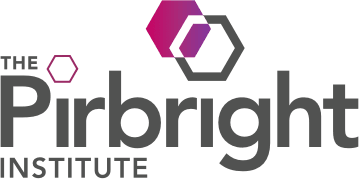Development of a non-infectious encapsidated positive control RNA for molecular assays to detect foot-and-mouth disease virus
Positive controls are an important component of the quality-control of molecular tests used for diagnosis of livestock diseases. For high consequence agents such as foot-and-mouth disease virus (FMDV), the positive controls required to monitor template extraction, reverse transcription and amplification steps usually consist of material derived from infectious viruses. Therefore, their production is dependent upon the use of high containment facilities and their deployment carries the risks associated with inactivation of live FMDV. This paper describes the development of a novel non-infectious positive control that encodes FMDV RNA sequences that are encapsidated within Cowpea mosaic virus (CPMV) particles. This surrogate RNA has been engineered to contain sequences from the 5?UTR and 3D regions of FMDV targeted by many molecular assays (conventional RT-PCR, real-time RT-PCR and RT-LAMP). These sequences were inserted into a movement-deficient version of CPMV RNA-2 which is rescued from cowpea plants (Vigna unguiculota) by inoculation with RNA-1. In order to evaluate the performance of these encapsidated RNAs, nucleic acid prepared from a 10-fold dilution series was tested using a range of molecular assays. Results generated by using the molecular assays confirmed RNA-dependent amplification and the suitability of these particles for use in a range of diagnostic tests. Moreover, these CPMV particles were highly stable for periods of up to 46 days at room temperature and 37 °C. Recombinant CPMV can be used to produce high yields of encapsidated RNAs that can be used as positive and negative controls and standards in molecular assays. This approach provides a surrogate that can be potentially used outside of containment laboratories as an alternative to inactivated infectious virus for molecular diagnostic testing.
